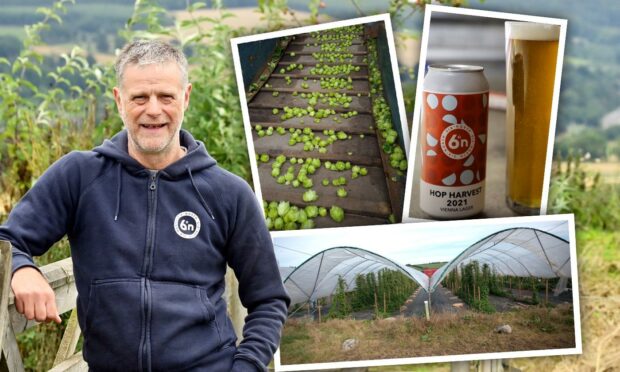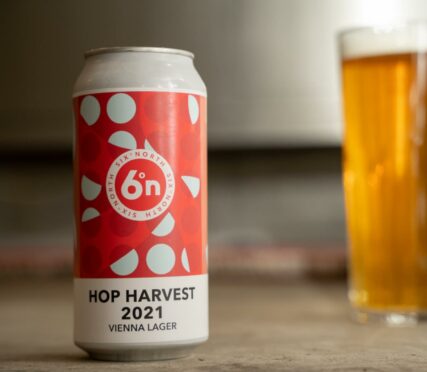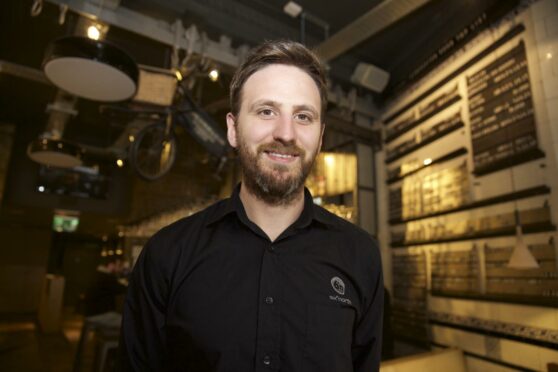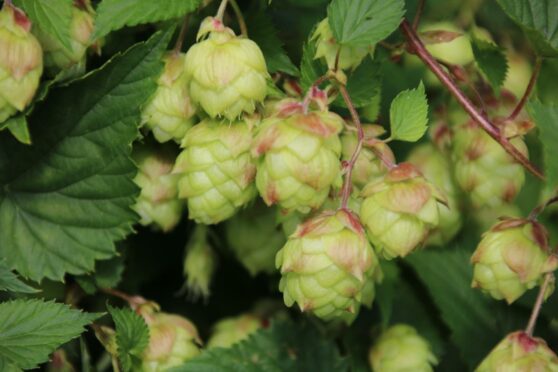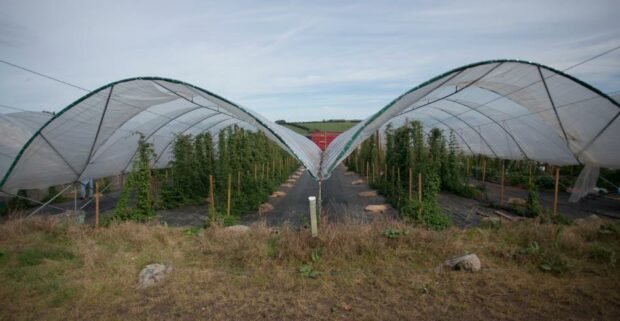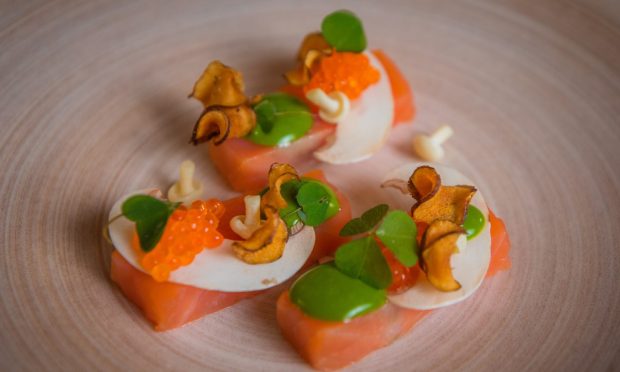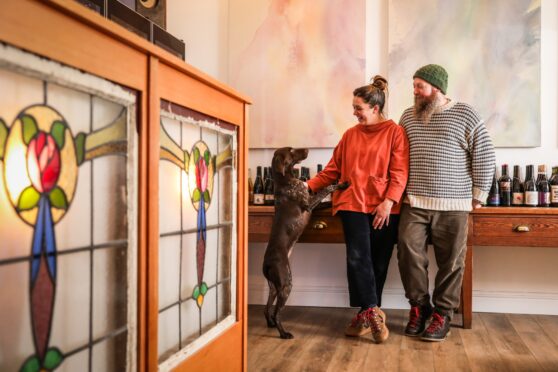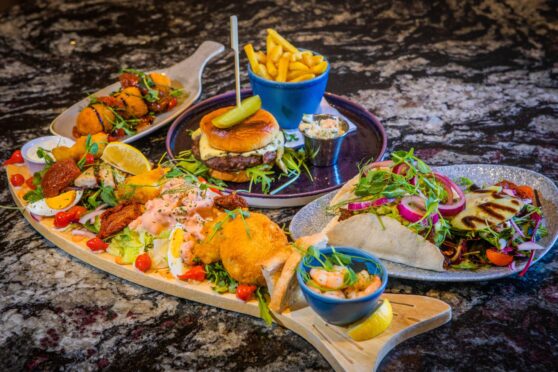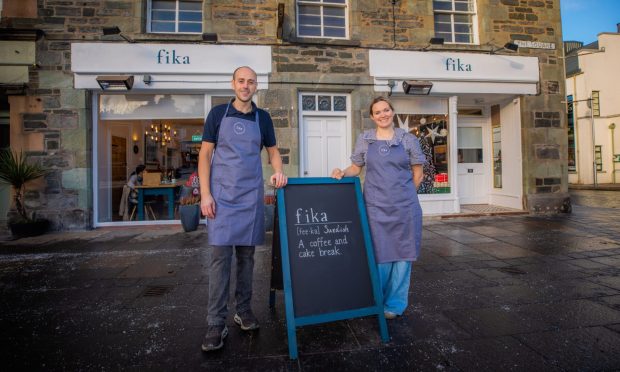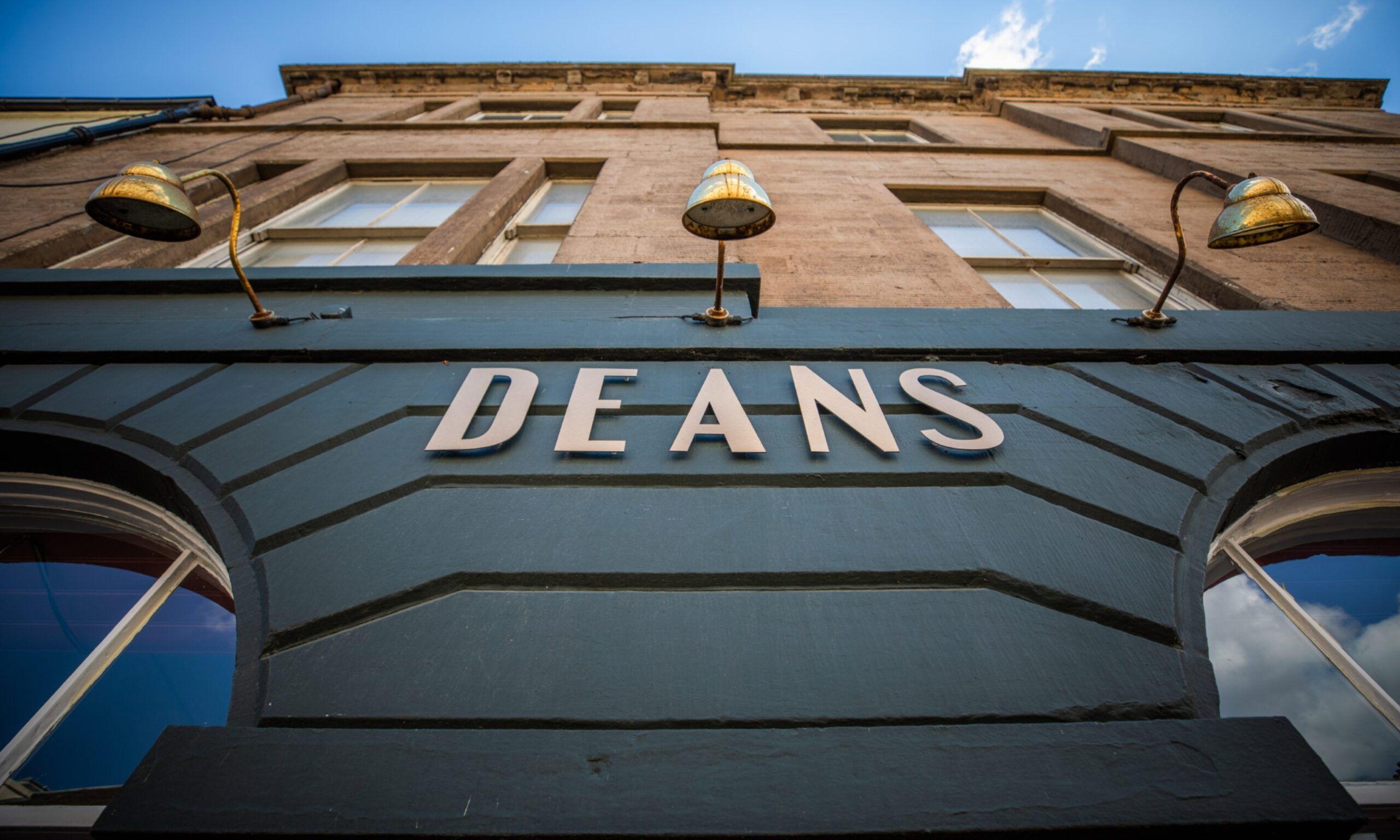Six Degrees North has revealed it is working towards using hops grown locally in Aberdeenshire across its range of beers.
Forming part of the business’ sustainability strategy, the firm recently unveiled its latest beer which is brewed using hops grown by Graham and Joan Henderson on their family farm near Hatton, Ellon.
Six Degrees North is one of very few businesses to grow hops for commercial purposes in Scotland as they are usually cultivated in warm temperate regions in Europe, the South Pacific and North America.
The Vienna-style lager, known as Hop Harvest, is hoped to be the first of many beers released by the brewery, based in Laurencekirk, that is brewed using these hops.
Sustainability strategy
The hop-farming programme is something the team are looking to pursue in the long term – using their own hops across their range of beers.
Committed to making products that reflect its locality, where possible Six Degrees North partners with local suppliers and wants to support the local food and drink industry, as well as its local community.
The brewer has released approximately 150 artisanal beers, which are driven by Belgian brewing traditions and inspired by modern brewing practices, since launching in 2013.
Grant Henderson, sales manager at Six Degrees North, said: “The north-east is blessed with a bounty of great produce and it would be remiss of us not to benefit from that.
“We have an excellent water source, for example, and the vast majority of our malted barley comes from the area.
“Hops are one important ingredient that is often imported, so being able to grow them locally makes a big difference.
“Our main aim is to build a robust and sustainable supply chain sourcing ingredients as locally as possible and decreasing our carbon footprint.
“Sourcing our malt and hops in the north-east will have a hugely positive impact alone.”
What other action has been taken so far?
The brewer is continually reviewing all areas of its supply chain and production operation, and always endeavours to implement sustainable practices and products.
Other sustainable measures implemented by Six Degrees North include:
- All their spent malt is collected by local farmers to feed their cattle, which avoids sending hundreds of tonnes of spent malt to landfills every year.
- Commissioning a canning line in April 2021, moving production away from glass bottles to aluminum cans which are more widely recycled.
- All its cardboard packaging is FSC-certified.
- Using compostable packaging peanuts.
- Its bars and restaurants sourcing products from sustainable suppliers.
- Using sustainable garments and clothing for merchandise where possible.
Grant added: “We feel this mindful approach to business will give our customers peace of mind that we’re doing our part to protect the environment.”
Hop Harvest
In 2019 Six Degrees North called on the expertise of Sandra Gordon and Euan Caldwell from The James Hutton Institute in Dundee, who had carried out a four-year study to determine the feasibility of Scottish hops as a viable commercial crop.
This data informed the brewery’s hop-farming programme in terms of variety selection and implementation.
The team continues to send the Institute hops for analysis every year pre-harvest, so they “know what to expect from them when brewing.”
Hop Harvest is a 5.1% ABV Vienna-style lager available in 440ml cans, which cost £3.75-4.
It can be purchased on the Six Degrees North website, as well as its range of bars and a number of local independent stockists including CASC, Marshall’s Farm Shop and Brew Toon Bottle Shop.
“The aim was to create a great tasting yet easy-drinking beer that would appeal to a wide audience, whilst showcasing the locally-grown hops,” Grant said.
The hops have been grown at Graham’s family farm near Hatton after he was given the opportunity to buy some polytunnels and started looking at unique crops that could be grown in them.
Robert Lindsay, founder of Six Degree North, then introduced him to the team at the Institute who were able to give some insights into how the plant grows and what varieties are best suited to the area.
The hops are brewed within less than 24 hours after picking, and the beer is then lagered for a total of 11 weeks.
“For Hop Harvest, we used freshly picked hops straight from the field as these give a subtle spice aroma that complements the malt bill really well,” he added.
“It is still a very small operation for the Henderson family. They are using polytunnels to help replicate the warmer weather found in traditional hop growing areas and have around 200 hop plants in total.
“The variety of hop they are growing is called Dwarf Pioneer, dwarf as they only grow to around 10-11 feet high as opposed to normal hops which can easily reach 20 feet.”
The challenges
Grant added: “It has been quite a learning experience, unsurprisingly the weather is a major challenge as hops like plenty of warmth but also knowing about what diseases and pests can spread through the plants (and how quickly) was something that has had to be learned pretty fast.
“Then there are the labour costs. This is actually the third year of growth for the plants with the first two years giving minimal crops as the plants ‘bed in’. Those minimal crops were still picked and in year one we had well over 80 hours of just picking.
“An old hop harvester has now been sourced from Europe which speeds the harvest up a great deal.
“Luckily having farmers with many years of experience growing various crops has meant that the hops have been a success and will continue to be one.”
Future beers
While the brewer already has a number of other beers that feature locally sourced ingredients, including some that are foraged from around the Cairn O’Mount, the team is looking forward to expanding this figure in the future.
Grant said: “This year we had enough of a crop to have some hops leftover which we have dried. These are being kept in our chilled hop store to keep them fresh.
“The aim is to use them as a base for some more premium lager styles throughout the year. This may include a special beer for the Midsummer Beer Happening that takes place in Stonehaven this June.”
Visit www.sixdnorth.co.uk for more information.
